CREDIT OPTIONS
QUICK OVERVIEW - ESPECIALLY FOR EXPATS & RESIDENTS
When unexpected expenses or personal projects arise, a private loan can provide the financial boost you need.
In Germany, private loans offer flexible terms and competitive rates, but navigating the options can be tricky — especially if you’re new to the country.
Our guide breaks down everything from eligibility requirements to interest rates and repayment plans, helping you find the right loan for your unique situation. Whether you’re looking for quick approval or tailored financing, we’ll help you understand your choices and make confident decisions.
Discover flexible private credit options in Germany. Learn how to apply, improve approval chances, and compare lenders — ideal for residents and expats.
PRIVATE CREDITS
Whether you’re furnishing your apartment, covering unexpected expenses, or financing a major purchase, a private credit (Privatkredit) can be a helpful financial tool — even as an expat in Germany. However, the process, requirements, and types of credits available here may differ significantly from what you’re used to. Here’s a concise yet thorough overview of the private credit landscape in Germany, tailored for newcomers and international residents.
What is a private credit in Germany?
A Privatkredit (also called Ratenkredit) is an unsecured consumer credit issued by a bank or online lender. You borrow a fixed amount and repay it over time in monthly installments (typically between 12 and 84 months) that include both principal and interest.
Private credits in Germany are not tied to a specific purchase (unless it’s labeled a car credit or home improvement credit), and they’re separate from mortgages or business credit.
Types of private credits in Germany
Here are the main types of private credit you’ll encounter:
- Standard consumer credit (Ratenkredit)
Fixed term, fixed interest, used for any personal reason. This is the most common form. - Car credit (Autokredit)
Specifically for vehicle purchases; often secured by the car itself, which lowers the interest rate. - Debt consolidation credit (Umschuldung)
Used to combine and refinance existing debts into one manageable loan, ideally at a lower interest rate. - Instant credit (Sofortkredit)
Faster approval and payout, often fully digital. Ideal for small, urgent expenses, but rates may be higher. - Peer-to-peer credit
Offered via platforms like Auxmoney, where private individuals finance your credit. Approval can be more flexible, especially for borrowers with limited credit history.
Who can apply for a credit?
While the exact requirements vary by lender, you generally need to meet the following criteria:
- Permanent residence in Germany with a registered address (Anmeldung)
- Valid residence permit or visa with proof of long-term stay
- Regular income from employment (usually a minimum of €1,200–€1,500 net/month)
- A German bank account (Girokonto)
- A good SCHUFA score (Germany’s credit rating system)
Expats with temporary contracts, freelancers, or limited credit history may face additional hurdles. However, newer banks and fintechs tend to be more flexible and offer alternative scoring models.
How to apply?
There are two main application paths:
Traditional banks
(e.g., Sparkasse, Volksbank, Deutsche Bank)
- Application typically in person
- Required documents: ID, proof of income, residence permit, bank statements
- Approval can take a few days to weeks
- More formal, but often better interest rates
Online banks & fintech lenders
(e.g., Auxmoney, Smava, N26, Check24)
- Fully digital application
- Instant credit checks and faster decisions
- Online video ID verification (VideoIdent) or PostIdent
- Flexible terms, often higher acceptance rates for expats
What interest rates to expect?
Interest rates in Germany are influenced by:
- Your creditworthiness (especially your SCHUFA score)
- The credit amount and term
- The lender’s risk assessment algorithm
Typical APR ranges from 2.5% to 9.5%, though lower rates are available for highly rated borrowers. Subprime or low-credit borrowers may be offered rates above 10%.
Tip: Always compare using tools like Check24, Verivox, or Finanzcheck.de before accepting an offer.
Important considerations
Here are the four points to remember:
- Language barrier
Many contracts are in German — don’t sign anything you don’t fully understand. - Prepayment options
Most loans in Germany can be repaid early, sometimes with a small penalty fee. Read the fine print. - Credit building
Successfully repaying a credit helps build your SCHUFA score, which can be important for future financing (e.g., renting, mortgages). - Beware of hidden fees
Watch for processing fees, optional insurance add-ons, and high default interest.
01
SCHUFA
Know your SCHUFA status
02
REPAYMENT
Calculate your real repayment capacity
03
COMPARE
Compare offers carefully
04
BORROW LIMIT
Never borrow more than you need
Need help finding expat-friendly credit advisors or comparing credit offers?
We’re happy to help you. Feel free to leave a comment, send a message, or book yourself an appointment — and start planning your journey today.
Contact us
Monday to Friday:
9:00 AM – 6:00 PM
or by prior arrangement
Phone:
Email:
